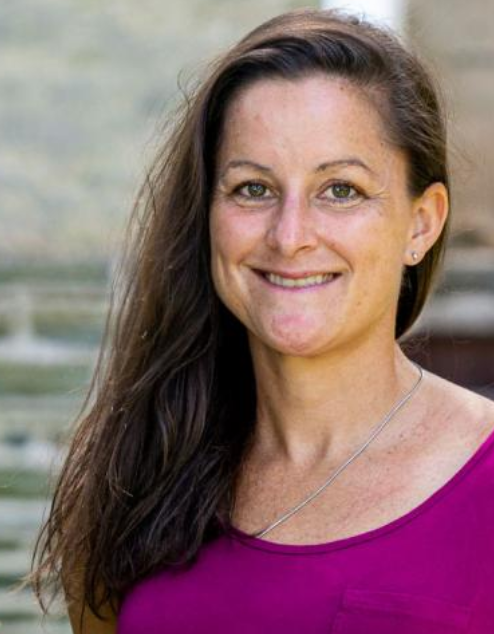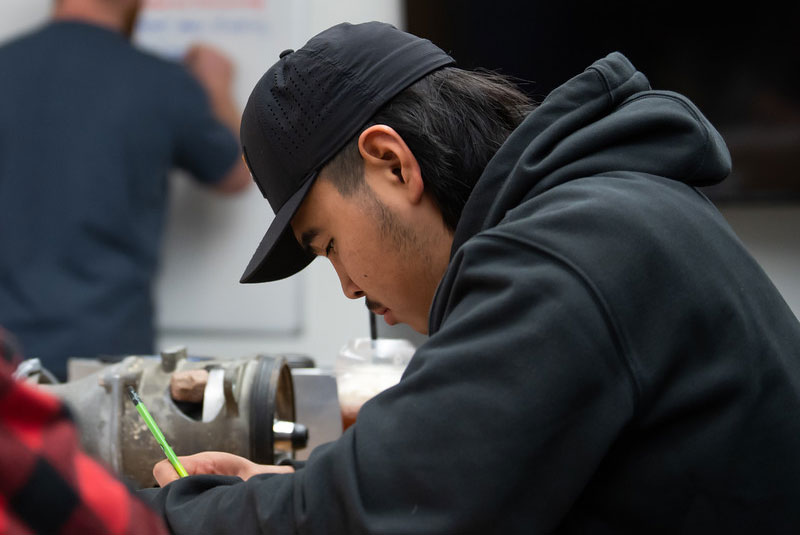Natural Resources Technician
Occupational Endorsement Certificate in Natural Resources Technician
Students can complete this OEC in 1 semester
The Occupational Endorsement Certificate (OEC) in Natural Resources Technician provides students with the skills and knowledge necessary for successful employment at the technician level in natural resources through hands-on training and coursework. Students will learn technical skills from content experts, as well as communicative and social skills required for success in this growing field. They will also interact directly with natural resource management organizations that are in need of skilled technician level employees, facilitating a transition from the program to employment.
Requirements
- 14-17 Credit Hours
- Minimum 2.0 GPA
Please view the current catalog for a list of all required classes for this program.
Program Quick Facts
Cost Per Credit: $241 (for both in-state and out-of-state students); Grants, scholarships, and other financial aid is available for qualifying students and programs. Students (16 years or older) may be eligible to attend this program for free* for the 2026 Fall Semesters thanks to grant funding! *Tuition, academic fees, and housing are free for a limited amount of students per semester.
Location: Valdez
For more information about this program and to enroll you can contact PWSC Student Services:
email: pwsc.student.services@alaska.edu
call: 907-834-1600 (Mondays-Friday, 8 a.m.-5 p.m. AKST)
Grant Funding for Free Tuition and Housing
Please click the button below for more information on applying for grant funding for free tuition and housing.
Info on applying for grant funding
This program has been designed to prepare students for seasonal positions as:
-
- Entry-level technician with the Bureau of Land Management
- Entry-level technician with the National Forest Service
- Entry-level technician with the National Park Service
- Entry-level technician with Ahtna or other Alaska Native Corporations
Students enrolled in this program may want to continue their studies to advance their career. Possible pathways for majors to transfer into upon completion include:
- Associate of Arts in General Studies at Prince William Sound College
- Associate of Applied Scince in Technology at Prince William Sound College
- Bachelor's degree in biological sciences or natural sciences at the University of Alaska Anchorage
- Bachelor's degree in natural resources and environment or wildlife biology and conservation at the University of Alaska Fairbanks
- Bachelor's degree in marine biology or environmental resources at the University of Alaska Southeast
For specific guidance on a transfer path it is best to make an advising appointment with an academic advisor. Contact PWSC's academic advisor to set up an appointment.
This program is the fall semester of PWSC's Semester on the Sound program. Students who attend the fall semester often choose to attend the spring semester Semester on the Sound program, which is the Marine Natural Resources OEC.
Meet The Professor
Dr. Amanda Glazier
 Amanda came to PWSC from Haverford College outside of Philadelphia. There, she was
a visiting assistant professor, teaching marine ecology, population genetics, advanced
genetic analyses, and superlab. Prior to that, she was a research assistant professor
and postdoctoral Fellow at Temple University in Philadelphia. Her research has focused
on population genetics, phylogenetics, and transcriptomics of deep-sea invertebrates,
and she is broadly interested in using genetic tools to address evolutionary and ecological
questions. Her research has spanned lab work, field work with five deep-sea research
cruises, and bioinformatics and computational work. While all of these are important
aspects of research and learning, in teaching, she deeply believes that experiential
and field-based techniques are the best way for students to learn and develop a passion
for environmental sciences and ecology. Her courses are developed as much in this
context as possible, getting students outside and physically working with the topics
instead of just sitting in a classroom. This may include part of the day in the field
and part in the lab or working with an online database to experience different aspects
of the subject. She is very excited to be in Alaska, developing courses in this context
in such a unique, incredible environment.
Amanda came to PWSC from Haverford College outside of Philadelphia. There, she was
a visiting assistant professor, teaching marine ecology, population genetics, advanced
genetic analyses, and superlab. Prior to that, she was a research assistant professor
and postdoctoral Fellow at Temple University in Philadelphia. Her research has focused
on population genetics, phylogenetics, and transcriptomics of deep-sea invertebrates,
and she is broadly interested in using genetic tools to address evolutionary and ecological
questions. Her research has spanned lab work, field work with five deep-sea research
cruises, and bioinformatics and computational work. While all of these are important
aspects of research and learning, in teaching, she deeply believes that experiential
and field-based techniques are the best way for students to learn and develop a passion
for environmental sciences and ecology. Her courses are developed as much in this
context as possible, getting students outside and physically working with the topics
instead of just sitting in a classroom. This may include part of the day in the field
and part in the lab or working with an online database to experience different aspects
of the subject. She is very excited to be in Alaska, developing courses in this context
in such a unique, incredible environment.
Follow her Instagram account where she posts about teaching environmental studies at PWSC! @environ_sciences_pwsc
Partners
This work is supported by the USDA National Institute of Food and Agriculture.










